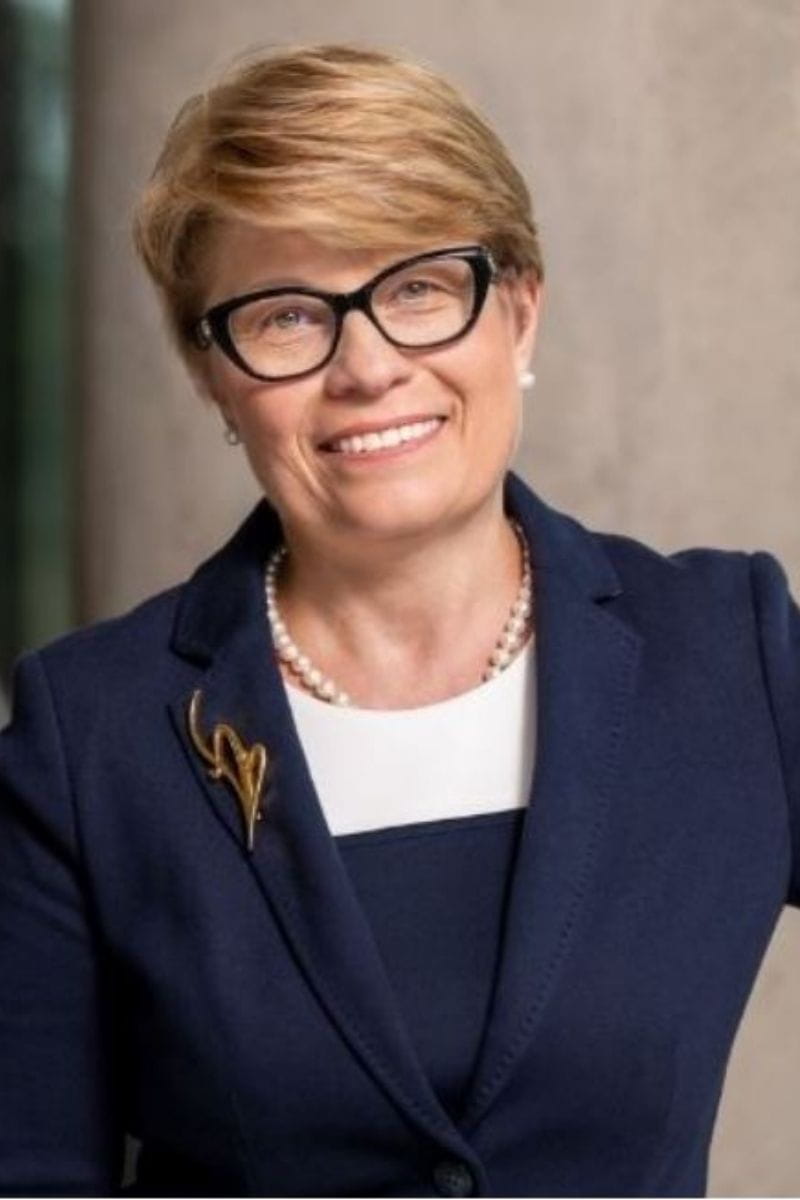
Gabriela Wilson says she "always wanted to work in a field where I could help people live healthier lives." But the co-director of the Multi-Interprofessional Center for Health Informatics (MICHI) at The University of Texas at Arlington said she figured out early on that a traditional route to that goal—like becoming a nurse or a doctor—wouldn't work for her.
After a long journey to find her ideal career path, she finally landed in the field of computational biochemistry and academic work as a pharmaco-informatics specialist.
"I am always inspired by the unknown," said Wilson, who also is director of health informatics and public health informatics and professor in the College of Nursing and Health Innovation. "It is about taking on large and complex challenges that only multidisciplinary teams can solve. I draw my energy from working with others, and this is what keeps me passionate about anything I do."
This week, Wilson will help lead the first in-person conference of the Texas Health Informatics Alliance, which takes place Sept. 9 at UTA. In this UTA Q&A, she talks about her academic journey and the future of health informatics.
How did your career in the private sector take shape?
Well, if I wasn't going to become a nurse or a doctor, the only other career choice left for a young woman who lived in an Eastern European country—at that time under a communist regime—was to become a chemical engineer. I finished my degree but never felt a passion for that field.
I got married to my high school sweetheart, and once we graduated, we left our native country of Romania with one suitcase and a few hundred dollars in our pockets in quest of a different life with better opportunities. We ended up in Belgium, and while working different poorly paid jobs, we both decided to get into graduate school. I chose to do a Master of Science in molecular biology and biotechnology, and after taking a few classes, I became passionate about the discipline.
Then, I decided to continue my education with a Ph.D. in computational biochemistry. So, once again, I packed up—this time with more than just one suitcase and a little more money in my pocket—and I left my husband behind to study in my childhood dream country, the United States. A few years later, it became my home! I graduated with my Ph.D., and after a few interviews, I landed a job as a computational scientist in a drug-delivery company.
How did you transition to academia?
Being in an industrial environment, I experienced the pressure to improve the operational efficiency of drug development. This task could only be achieved through the extensive use of new technologies that allowed the integration of any information collected during discovery, preclinical and clinical development.
A few years later, I moved into the academic world as a pharmaco-informatics specialist. My main job was designing drug molecules and assessing toxicity and drug-drug interactions via modeling and simulation. During this time, I realized that the key to a healthy life was not the long-term use of therapeutics, so I became very interested in the health informatics aspect of this process that involves evaluating and comparing drug candidate characteristics and how they impact human life. Most importantly, I became passionate about understanding what causes a disease and what we need to do to prevent it.
What past accomplishment makes you proudest?
I never measure my success based on what terminal degree I have, how many publications I have or how many awards I receive. Instead, I measure it by looking at how I inspire and help others and what I bring back to the country that adopted me and the community in which I live. When I see one of my students succeed because they took one of my courses or worked on a research project with me, this constitutes my proudest achievement.
What are you most excited about right now?
Recent advances in technology and digitalization across all industries accelerated change and benefited many, but not necessarily equitably. I am excited about the opportunities we all have to understand better how social determinants of health, health literacy, health information exchange, artificial intelligence and mobile technologies can improve the quality of care and positively impact our communities.
What are you most looking forward to?
I look forward to educating my students about emerging health care trends and engaging and contributing to larger-scale community partnerships to help identify areas of our communities that experience health inequities and racism. Now is the time to take these bold steps, as only by working together can we promote health equity and racial and social justice.
- Interviewed by Amber Scott, University Advancement






